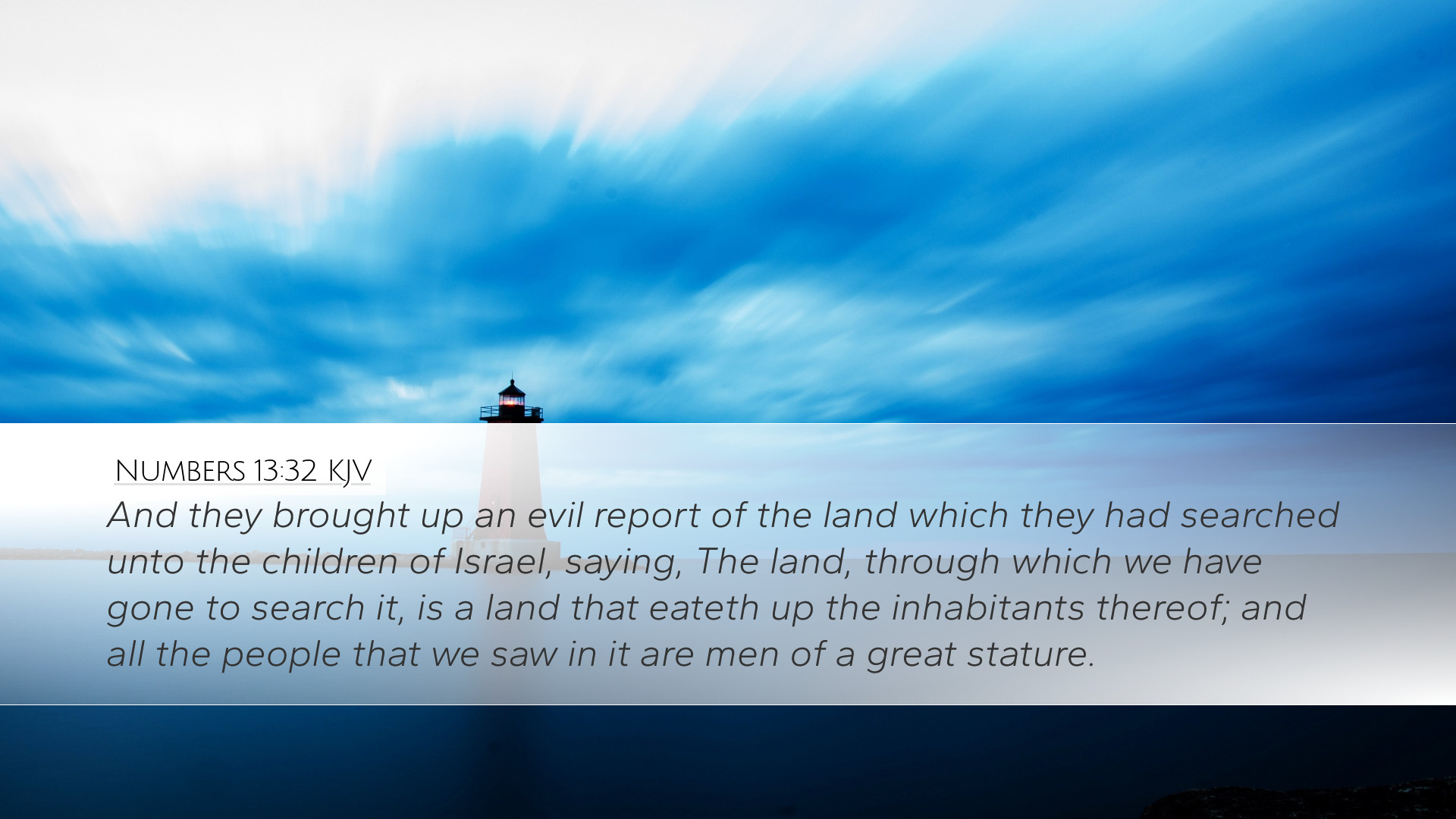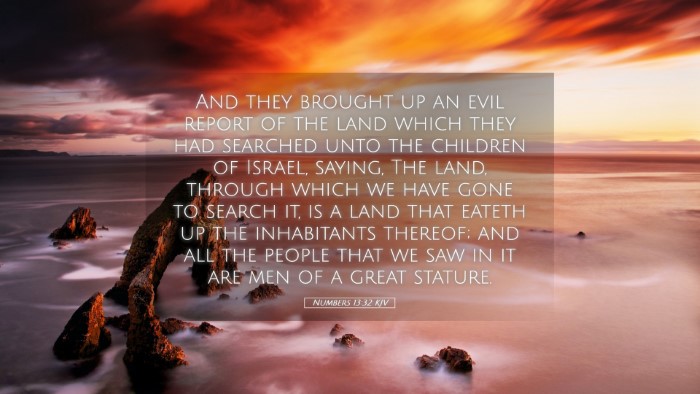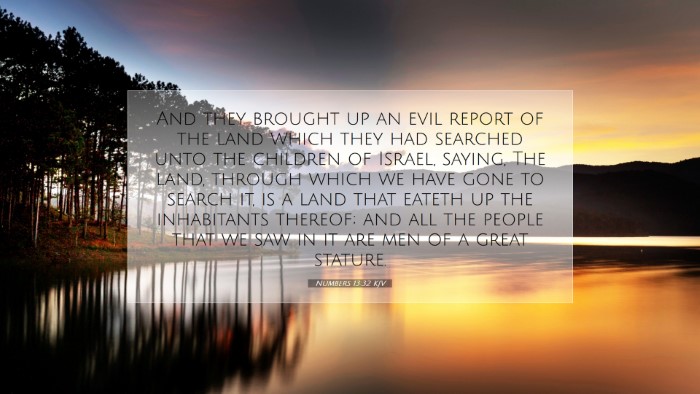Commentary on Numbers 13:32
Numbers 13:32 states, "And they brought up an evil report of the land which they had searched unto the children of Israel, saying, The land, through which we have gone to search it, is a land that eateth up the inhabitants thereof; and all the people that we saw in it are men of a great stature."
This verse is a critical turning point in the narrative of the Israelites' journey to the Promised Land. The report given by the spies reflects both their observation and attitude, revealing deeper spiritual truths relevant to believers.
Overview of the Context
The context of this verse is set during the reconnaissance mission of the twelve spies sent by Moses to explore the land of Canaan. Their task was to assess the land’s fertility and its inhabitants. However, the report they brought back was laden with negativity that undermined the faith of the Israelites.
The Nature of the Report
The spies' report can be categorized as:
- Descriptive: They described the land as rich and fruitful, but also populated by giants and fortified cities.
- Evaluative: Their conclusion suggested that the land was dangerous and inhospitable, as it 'eateth up the inhabitants'.
- Influential: Their words played a pivotal role in swaying public opinion, leading to disobedience and fear among the people.
Theological and Spiritual Implications
This verse presents several theological implications worthy of examination:
- Faith vs. Fear: The spies’ report showcases the struggle between faith and fear. While Caleb and Joshua attempted to instill faith in God's promises, the overwhelming negativity of the other spies fostered fear.
- Perspective on Challenges: The phrase "the land that eateth up the inhabitants" signifies how challenges can sometimes distort our perception of reality. Rather than viewing the challenges in light of God’s promise, the spies viewed them through their limitations.
- Leadership and Responsibility: This report illustrates the weight of leadership. Negative input from leaders can lead an entire community into despair, impacting their spiritual trajectory.
Commentary Insights
Matthew Henry
Matthew Henry emphasizes that the evil report not only reflects the condition of the spies but also serves as a caution against disbelief. He notes that negativity can be contagious, spreading like wildfire, thus leading the community away from reliance on God and towards disobedience. His admonition encourages believers to remain steadfast in their faith, even when faced with daunting challenges.
Albert Barnes
Albert Barnes focuses on the description of the land and the inhabitants, illustrating that the spies underestimated the power of God to overcome their foes. He notes that despite their physical observations being true, their conclusions lacked the faith needed to trust in God’s promise. Barnes invites readers to reflect on the importance of aligning one’s perception with divine truth rather than human limitation.
Adam Clarke
Adam Clarke takes a psychological approach to the text, analyzing the mindset of the spies and the ramifications of their report. He suggests that they were more focused on their fears than on God's promise. Clarke emphasizes the moral lesson of maintaining faith when confronted with giants in our lives, urging believers to act boldly, knowing that God's promises are greater than any obstacle.
Practical Applications
The insights derived from this verse and the commentaries can be applied in various contexts:
- Encouragement of Faith: Believers are encouraged to nurture faith, especially when confronted by daunting challenges.
- Community Influence: Those in leadership should be mindful of their words and attitudes, understanding their potential to influence others significantly.
- Right Perspective: Maintain a focus on God’s abilities rather than human limitations when assessing situations.
Conclusion
Numbers 13:32 serves as a timeless reminder for believers not to allow fear to overshadow faith. It invites critical self-examination and encourages a community rooted in trust and dependence on God. As pastors, students, theologians, and scholars study this passage, the reflection on the nature of their perception, the weight of their words, and their collective faith becomes ever crucial in their spiritual journey.


